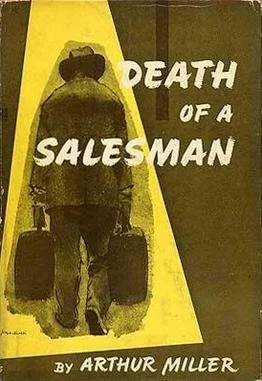Pestilential Theologies: On the Grand Narrative of Our Time
Flagellants, from the Nuremberg Chronicle. They were a sort of itinerant lay order that would travel from town to town and city to city to practice the mortification of the flesh, in the hopes that it would end the plague. For obvious reasons, this didn’t work.
Edgar and I caught Covid over the holidays. We’re both fine, but after two years of dodging the virus, it’s incredibly frustrating that it happened. The exact vector of infection is still a matter of speculation at this point, but of the several small gatherings we attended in the week around Christmas, only the one that happened shortly before I began evincing symptoms appears to have resulted in any transmission.
When every other event appears to have a 0% infection rate, it’s fairly easy to point to the one that had a 45% infection rate and say that it doesn’t quite fit.
At this event, everyone who could be vaccinated and boosted was. There were several children present, so it’s not complete. However, Edgar and I, as well as a minority of those in attendance, tested beforehand and scored a clean bill of health. Those that didn’t test assumed that everything was fine because they had been careful, and tests were difficult to find anyway.
We are twenty-two months into this and – until now – Edgar and I managed to stay safe. Needless to say, we’re going stir-crazy in the apartment, our sanity hanging by a thread. Of course, as is said repeatedly in Slings and Arrows by the character Geoffrey Tennant (Paul Gross), “the very best things happen right before the thread snaps.”
So let’s see if we can pull something interesting out of this situation.
Mid-plague, it’s fairly easy to view an infection, seemingly from nowhere, as something like the judgment of god: as a sentence handed down that one has been insufficiently rigorous in the measures that they have been taking. It’s easy to look at it this way, because looking at it without this narrative framework is daunting: one in six Americans is Covid-positive. At this point, an individual isn’t really able to remain completely safe: you’re just bending probability curves slightly.
And alongside everything else, we have what the folks over at Cool Zone Media call “the crumbles” – civil unrest, political gridlock, supply chain disruption, the general increase in entropy in the system – and this, certainly, makes it feel like we’re living through some kind of period of divine judgment. Those living through the fall of the Western Roman Empire or the unrest of the 14th century no doubt felt somewhat similar.
Most of us don’t have room in our lives for the explanation that this is divine judgment. And those of us who allow for that tend to believe that it progresses by causal channels (call it the “fuck around and find out” model of theodicy.) A big part of this is due, not just to the Victorians, but to the narratives that cropped up in their wake.
Let’s talk about Grand Narratives – what the philosophers called métarécits or “meta-narratives” – and what they mean. A Grand Narrative is a story about the stories we tell: it’s a system of logic that arranges the statements that might be productively made and helps determine if they are sensible or not. From the time of Constantine until the Protestant Reformation, for example, the Grand Narrative of western Europe was that of the Catholic Church: Christendom was the protagonist of history, and we were living through its striving as it sought to establish a universal Kingdom of God. This thinking hung on for a time, but from the Reformation to the beginning of the twentieth century, it was refracted and reflected, shattered and stitched back together into dozens of ideologies: leading people to faith in the Brotherhood of Man, faith in Democracy, faith in the struggle of the working class. Eventually, though not finally, this led to Modernism – the faith in Progress. In some ways this was poetic and beautiful; in others it was degenerate and pandered to the least common denominator. However, it’s important to note that, according to most interpretations, Modernism – alongside capitalism – was the ideological root of fascism.
Which is where postmodernism comes into the equation.
I probably shouldn’t call Jean-François Lyotard “Johnny-Frank”, but we’re reading Libidinal Economy out loud to one another, and I’ve been doing exactly that.
In the past, I’ve talked several times about postmodernism (or post-modernism; I should follow a style-guide and select one or the other, but I’m not doing that here. Deal with it,) and that’s mostly the context I know about Grand Narratives. Jean-Francois Lyotard claimed that one of the key traits of the postmodern condition is a skepticism of meta-narratives – though it’s unclear whether he was being descriptive or prescriptive here. My main contention about “postmodern philosophy” is largely that, unlike the vulgar right-wing analysis of their work, many of these philosophers were writing descriptively: that is, they understood that the condition that they were describing was already in place and they were attempting to diagnose it.
I’m not sure that the skepticism towards Grand Narratives is descriptive. I believe that it was one of the few prescriptive moments in the writing of an avowedly postmodern philosopher. Consider: Modernism, in its striving towards ever higher forms of “progress”, may be identified as the root of fascism – but what if fascism is not simply a form of palingenetic ultranationalism, as Roger Griffin contended? What if it, or something near enough to it as to be indistinguishable from it, lurked at the far end of every ideological bell curve?
What if the stories we tell, the systems of knowledge that we concoct, inevitably lead to horrors of the same caliber?
Well, then the most rational thing – the most moral thing – would be to kill the story and the system it depends on.
This idea – that we’re done with meta-narratives – has spread like wildfire, and is itself contending with the older, modernist and aristocratic models of thought that still hold on. The proletarian form of this narrative is the idea that “everyone is special in their own way” (with the attendant corollary, of course, that this means that no one is special. We feed the first part to our children, and then our youths cough up the second part eventually, once the adolescent nihilism sets in.)
In my read, though, none of these meta-narratives really has a strong grip on the way that we think about the world. Lyotard tried to kill the meta-narrative, but he simply made it all contestable: instead of a desert, he made a rugby scrum – and we’re picking our way through the exhausted remnants of it.
What you may notice is that I’ve been going on for nearly seven hundred words after mentioning Covid and theology, and none of this has much to do with that. Trust me, I’m getting there.
To me, there is a meta-narrative of the contemporary Anglo-American world. It is most succinctly expressed in the Talking Heads song “Once in a Lifetime” (which is, itself, potentially just a weird – or perhaps wyrd – inversion of Malvina Reynolds’s “Little Boxes”: druggedly looking out instead of looking in.) By this I mean that there’s this feeling that we’re sleepwalking through life and, moreover, that we’re supposed to do that.
We have all of these stories that we tell children about how they are, yes, special, but that they’re able to achieve whatever they want. This isn’t at all true, though: clearly, not everyone can be a celebrity, or be the boss, or be the best. So the vast majority of us, those who aren’t able to become exceptional, are expected to just de-protagonize and allow ourselves to drift through life.
I can’t trace the beginning of this, but alongside the songs “Once in a Lifetime” and “Little Boxes”, I think we can see some of the roots of this in Arthur Miller’s Death of a Salesman, which was written explicitly a tragedy of the everyman. Replace Oedpius and Hamlet with Willy Loman, and see what happens.
You get a much sadder, smaller story, one that resonates, but differently. No one’s about to quote any of Willy’s monologues, though; and no one’s going to talk about a Willy-Loman-complex.
This is where we have the genesis of our problems with Covid: in America – most likely elsewhere, to some degree or another, but definitely in America – we trace our value through our hard work. The signs of progress here come in the acquisition of the markers of success (catalogued by Byrne as a beautiful house, a large automobile, and a beautiful wife. All to be washed away when the money runs out.) It is in displaying these markers that one acquires status in the eyes of their confederates (of course, the model proposed here is hopelessly patriarchal, but that’s never really stopped Americans before.)
The resistance to the required lockdowns, to stem the spread of Covid, can best be understood as a refusal to letting the song be rewound (goodbye beautiful house, goodbye beautiful wife, goodbye large automobile – back to the shotgun shack where the song opens. Or forward to the water washing it all away, perhaps.)
The resistance to the necessary measures – the lockdowns, the masks, the vaccines – is not founded on the level of fact. It is founded in the level of the meta-narratives. As such, it is a theological rejection of fact. Of course, I’m not saying that David Byrne or the Arthur Miller are responsible for this, but they described it in their works: only by continuing with business as usual, the ideology they described says, can we achieve economic salvation.
What is needed is a kind of counter-Theology: faith doesn’t trump facts, but sadly the reverse is also true – you can’t change someone’s faith with facts. To counter belief, you need to operate on the level of belief.
It’s unfortunate, but putting forward that we need to take care of one another, that we need to value human life, isn’t a compelling argument to those that hold to this faith in business as usual. What we really need is to accept that there is a generalized duty that every person has to society at large. If I can be said to have a faith, then I think that this, more than anything, is the central tenant.




